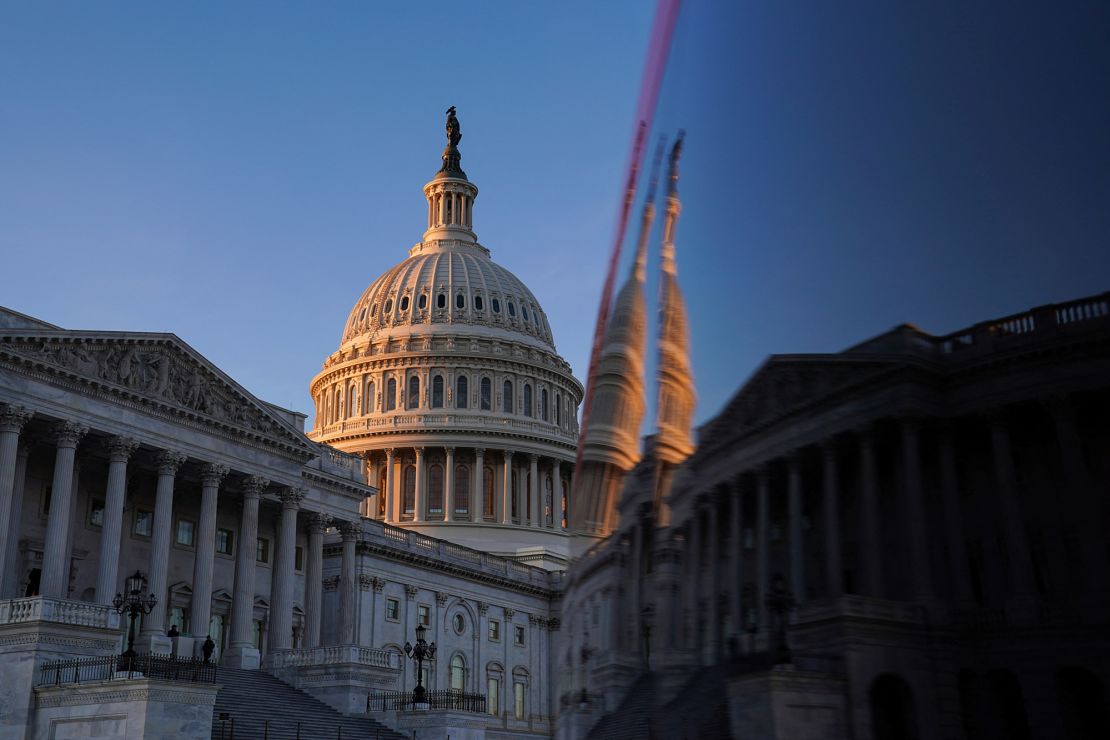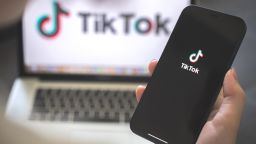In a matter of days, the United States is expected to ban federal employees from downloading or using TikTok on government-issued phones or tablets, marking the country’s broadest crackdown on the short-form video app to date.
The looming ban is the result of a bill that’s moved through Congress in the final days of the year with lightning-fast speed and bipartisan support. It’s gone from being just another proposal from a Republican lawmaker to being unanimously adopted in the Senate, backed by House Speaker Nancy Pelosi and added to a massive year-end congressional spending package. The proposed ban has support from the White House, which already blocks TikTok on its devices.
The TikTok measure, while limited in its impact on the app’s wider US user base, highlights how quickly lawmakers can act when a combination of national security fears, bipartisan anti-China suspicions, and more targeted proposals cause the legislative stars to align.
But in fast-tracking the bill, Congress can’t help but draw attention to its notable lack of progress on regulating American tech giants more broadly — despite years of reports, hearings and proposed legislation.
The stark difference between the two illustrates how simple narratives, well-funded lobbying and genuinely thorny policy questions can make or break a bill. It also hints at how a select few Big Tech companies continue to maintain their dominance in the market and their centrality in the lives of countless US households.
Washington finds a different tech villain
The tech industry’s largest players have faced a kitchen sink of allegations in recent years. From knee-capping nascent rivals; to harming children and mental health; to undermining democracy; to spreading hate speech and harassment; to censoring conservative viewpoints; to bankrupting local news outlets; Big Tech has been made out as one of Washington’s largest villains.
But over the course of this year, TikTok has once again emerged as an even bigger target, two years after the Trump administration threatened to ban the application in the United States amid rising tensions with China. And one reason why is the relatively straightforward case that US policymakers have put forward for banning the app.
The central allegation against TikTok is that the company poses a potential national security risk. US officials have worried that the Chinese government could pressure TikTok or its parent company, ByteDance, into handing over the personal information of its US users, which could then be used for Chinese intelligence operations or the spreading of Chinese-backed disinformation.
There’s no evidence yet that that has actually happened. Still, policymakers and security experts have said China’s national security laws make it a possibility — identifying a kernel of risk that fits into a broader anti-China narrative linked to issues including trade, human rights and authoritarianism. Those concerns were renewed after a report this year suggested US user data had been repeatedly accessed by China-based employees. TikTok has disputed the report.
In recent weeks, numerous states have leapt on the bandwagon, further increasing the pressure on Congress to act. More than a dozen states have now banned TikTok on state government devices, from Maryland to South Dakota.
TikTok has insisted it maintains robust security controls on its data and that it prioritizes user privacy. It has also taken steps in recent months to wall off US user data from other parts of its business, both technologically and organizationally. But earlier this year, it acknowledged that China-based employees can access TikTok user data and declined to commit to cutting off those data flows in general.
Since 2020, TikTok has been negotiating with the US government on a possible deal to keep the app running in the United States. But those talks have so far proven fruitless, giving an opening to policymakers in Congress and at the state level to seek restrictions on TikTok.
“We’re disappointed that Congress has moved to ban TikTok on government devices—a political gesture that will do nothing to advance national security interests—rather than encouraging the Administration to conclude its national security review,” said Brooke Oberwetter, a TikTok spokesperson.

TikTok’s head of public policy, Michael Beckerman, has called the ban affecting government devices a “political approach that doesn’t have any real impact on national security.”
“We think a lot of the concerns are maybe overblown,” Beckerman told CNN’s Jake Tapper on Tuesday, “but we do think these problems can be solved” through the ongoing government negotiations.
American tech giants better at playing defense
TikTok has significantly expanded its Washington presence in recent years.
In 2019, ByteDance had 17 lobbyists and spent $270,000 on lobbying, according to public records gathered by the transparency group OpenSecrets. By the end of last year, its lobbyist count had more than doubled and the company had spent nearly $5.2 million on lobbying.
That pales in comparison, however, to the full force of Big Tech’s lobbying machine, which has become one of the largest in Washington.
Meta was the biggest internet industry lobbying giant last year, spending upward of $20 million. Next was Amazon at $19 million, then Google at almost $10 million. Combined, that’s roughly $49 million in lobbying — almost 10 times what was spent by TikTok’s parent, which nevertheless clocked in at number four on the list.
Tech giants have repeatedly deployed their CEOs to Capitol Hill, who in some cases have made arguments citing the threat of Chinese competition. They’ve also leaned on help from trade associations they’re members of and relied on advertising campaigns to make the case against some of the biggest legislative threats to their business.
One of those bills, the American Innovation and Choice Online Act (AICOA), would erect new barriers between tech platforms’ various lines of business, preventing Amazon, for example, from being able to compete with third-party sellers on its own marketplace. That legislation was a product of a 16-month House antitrust investigation into the tech industry that concluded, in 2020, that many of the biggest tech companies were effectively monopolies.
For much of this year, supporters of AICOA insisted the legislation had enough votes to pass, and they called on Senate Majority Leader Chuck Schumer to bring it to a floor vote. But between intense tech lobbying and doubts about whether the bill did in fact have the votes, it never received the floor time its supporters wanted. The same fate awaited other tech-focused antitrust bills, such as one that would have forced Apple to allow users to download iPhone apps from any website, not just its own app store.
For a brief moment this month, lawmakers seemed poised to pass a bill that could force Meta, Google and other platforms to pay news organizations a larger share of ad revenues. But the legislation stumbled after Meta warned it could have to drop news content from its platforms altogether if the bill passed.
Time and again, Silicon Valley’s biggest players have maneuvered expertly in Washington, defending their turf from lawmakers keen to knock them down a peg.
An easy win for Congress
But it isn’t just lobbying that has made some of these bills difficult to pass. It’s much more challenging to impose sweeping regulations on an entire industry than it is to pass a bill governing how the US government handles its own technology.
The TikTok bill banning the app from government devices is seen as having a limited potential impact on the company’s wider US user base, which skews younger. A ban on public employees’ use of the app likely wouldn’t reach the many teens or other young people with whom the app has grown increasingly popular.
With at least 100 million US users as of 2020, and likely more by now, TikTok has become almost “too big” to ban outright, some analysts have said.
Politically speaking, in light of TikTok’s deep foothold among US consumers, a ban affecting government devices also represents low-hanging fruit for policymakers who enjoy clear legal authority over official devices and don’t have to worry about triggering a consumer backlash that a broader ban might invite.
By contrast, decisions about the rules government might impose on tech platforms have called into question how those regulations may affect different parts of the economy, from small businesses to individual users to the future of the internet itself.
In some cases, as with proposals to revise the tech industry’s decades-old content moderation liability shield, Section 230 of the Communications Decency Act, legislation may raise First Amendment issues as well as partisan divisions. Democrats have said Section 230 should be changed because it gives social media companies a pass to leave some hate speech and offensive content unaddressed, while Republicans have called for changes to the law so that platforms can be pressured to remove less content.
The cross-cutting politics and the technical challenges of regulating an entire sector of technology, not to mention the potential consequences for the economy of screwing it up, have combined to make it genuinely difficult for lawmakers to reach an accord.
It’s no wonder, then, that when Congress sees an easier victory within its grasp, lawmakers take it.












